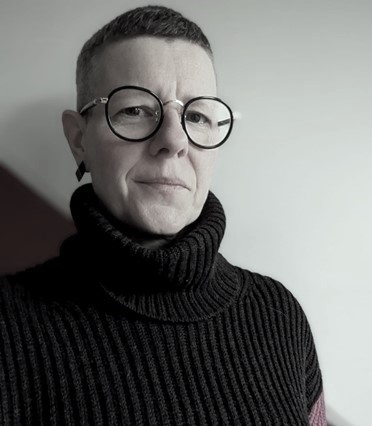
In this post, Cecile Menard introduces January-February’s Learning and Teaching Enhancement theme: ‘Learning how others learn’↗️. This series, which derives from a PTAS project led by Dr Menard, will feature reflections by students on their learning strategies to showcase why understanding how others learn can be a productive way to improve our own learning – and teaching – experience. Cecile Menard is a researcher at the School of Geosciences.
We spend years of our lives learning. Yet, how often are we encouraged to reflect on what learning means or is? Does it matter “who” teaches you? What teaching method allows you to learn best? Can you learn anywhere? Do you sometimes learn just for knowledge’s sake or only when you have to? What do you want to learn at university? These are the type of questions we debated at a series of small workshops in Spring 2023. Each workshop lasted three hours and was co-led by two researchers (including myself) and attended by up to eight postgraduate and undergraduate students based at the School of Geosciences. During the first two hours, students debated these questions, prompted by photos they brought and film excerpts my colleague and I selected. During the last hour students were asked to design the structure of an interdisciplinary course, taking into consideration what was discussed during the previous two exercises.
Preparing the workshops prompted me to reflect on my own university student years.
In a nutshell, I loved every lecture, tutorial and seminar I attended. It isn’t some nostalgic distortion of reality; I knew then that I loved it, “it” being learning. With every new slide on my lecturers’ Powerpoint presentations, I learned something new, which I then read about for hours – and then more – at home or in the library. Unlike my fellow students, for whom some first-year lectures felt like the repetition of what they had learnt the year before they started university, it was all new to me. I had come from a different education system that I had left 10 years before and in which Physical geography and Environmental Sciences, the two majors I went on to graduate in, were not taught [1].
Lab sessions, though, I hated. Or feared. Same difference [2].
At the start of every lab session, students were given an instruction sheet with steps to follow within a specific timeframe. But all the instruction sheets I read in every module I took that included lab work made the same mistakes: they assumed that all students knew the lab lingo (or at least, that is what it felt like). Not only was I expected to know what “titration” meant, I was supposed to understand what it was for and which equipment to do it with. Lab work was group work and in any group I joined, I was always the only one not to understand the instructions. Again, my classmates had done lab work previously, but I hadn’t. Time was of the essence and none of us wanted me to slow the whole group, so more often than not, the other group members did more than their share to compensate for what I could not do. There were many acts of kindness towards me during those lab hours but the flip side of this was that I hardly learned anything because I never did anything myself.
So I’ll finish where I started: how often are we encouraged to reflect on what learning is to us or on how we learn best? By the end of our university degree, how can we have spent so much time with classmates and not have discussed with them how they learn? Or even discussed what learning really is – can we only learn from a qualified teacher or from other students? Do we need to understand everything immediately or if it’s OK to spend hours going through the motions until we “get it”? What I loved during lectures – knowing nothing and learning something new all the time – worked against me in the lab because of two factors: time pressure and lack of access to the facilities outside our classes for me to repeat the experiments and to learn in my own time. In a Higher Education landscape that becomes ever more focused on providing the right skillset for graduates when they enter the job market, it feels odd to me that reflections about how, where, from whom we and others learn are not integral to every degree program when every other hour is spent learning.
There needs to be more space given to challenging and to talking about what learning actually means to us, but also what it means to others, especially, what it means to others. From my perspective, I never saw equity and inclusivity being accounted for so effortlessly as when the students co-created the structure of an interdisciplinary Geosciences course in the workshop. Recognising that no course could cater to everyone all the time, their realistic goal was to cater to as many students as much of the time – a stark improvement on the experience of many students. We had all spent two hours talking about what worked for each one of us, understanding and appreciating how diverse how learning styles were. From that point on, creating an inclusive course that provided opportunities for all to learn how best they could simply made sense.
[1] In France, where I grew up, history and geography are compulsory until the baccalauréat and are taught as a single module by the same teacher. Although they each have their own syllabus, it would just be easier to rename the course “geopolitics” because it really is what it is. The “Life and Earth Sciences” option was not available when I took my baccalauréat. [2] “Hate” and “fear” in Greek are the same word; the suffix “-ophobe” used in words like “homophobe” or “xenophobe” to mean “hate of”, in fact means “fear of”.This blog post was inspired by the workshop Student-staff co-design of an undergraduate course: investigating the “who”, “where”, “how” as well as the “what” of teaching and learning in Geosciences, which was funded by the Principal’s Teaching Awards Scheme “Research staff: The missing link in teaching and learning?”↗️
 cecile menard
cecile menard
Cecile Menard is a researcher at the School of Geosciences. Her research examines how research is created, with a particular focus on how the context in which research is conducted affects its content. She is the principal recipient of the Principal’s Teaching Awards Scheme “Research staff: the missing link in teaching and learning?”. The workshops mentioned in this and the other blog posts in the series were co-designed and co-led by Cecile and Minkyung Kwon as part of this project.



Nice article.keep up the good work.thanks